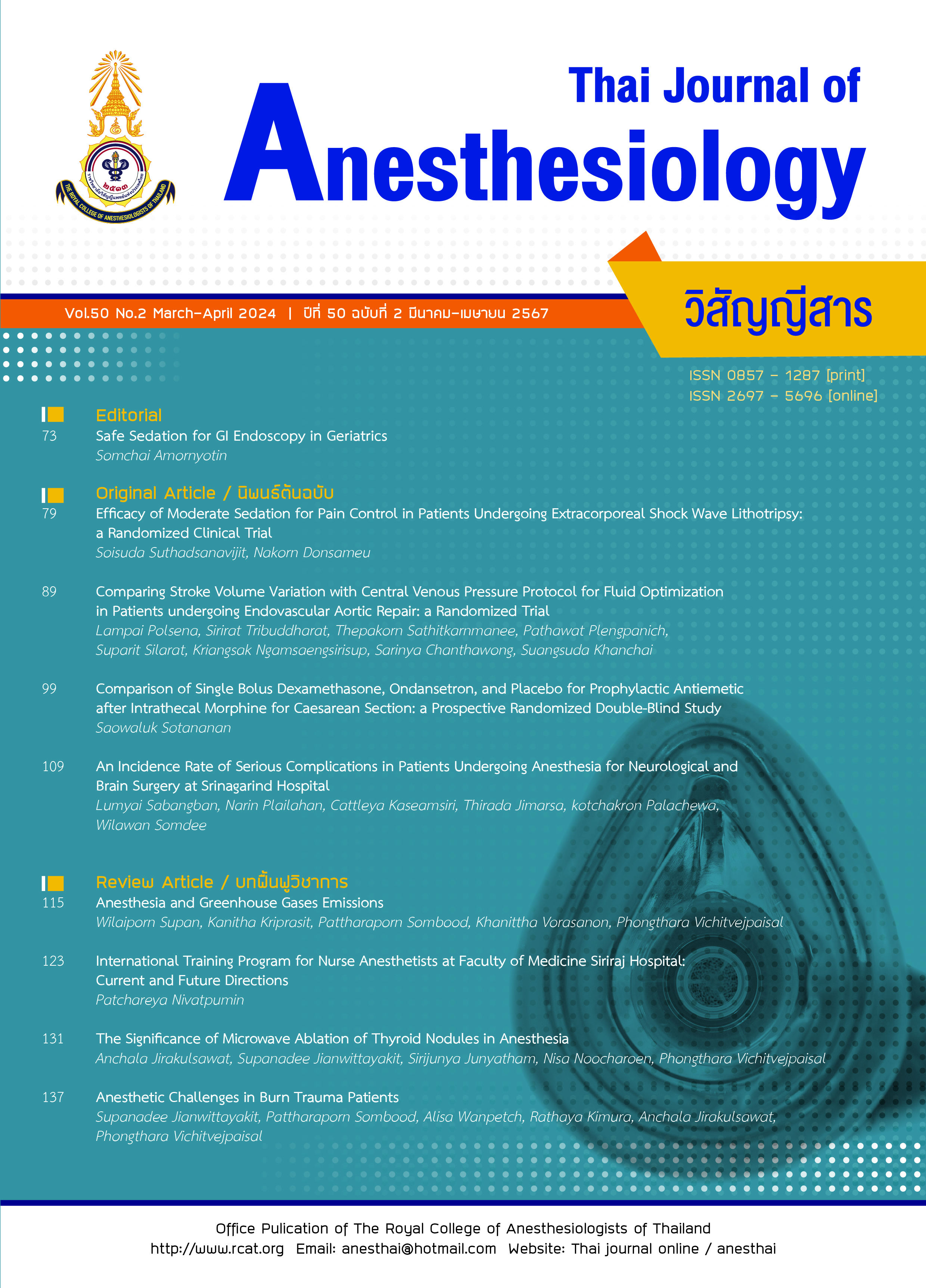The Significance of Microwave Ablation of Thyroid Nodules in Anesthesia
Main Article Content
Abstract
Microwave ablation has emerged as a significant therapeutic option for the treatment of thyroid nodules, offering several advantages over traditional surgical approaches. The use of microwave ablation for thyroid nodules provides a minimally invasive alternative to surgery, minimizing patient discomfort and reducing the risk of complications. Anesthesia provider plays a crucial role in optimizing patient comfort. Anesthesia techniques, such as sedation or monitored anesthesia care, can also be utilized to alleviate anxiety and pain during the treatment. Furthermore, anesthesia administration allows for the precise and controlled delivery of microwave energy to the targeted thyroid nodules, ensuring optimal outcomes. Anesthesia personnel closely monitor vital signs, ensuring patient safety during the procedure and promptly addressing any potential complications. The preservation of thyroid function is another significant advantage of microwave ablation. Anesthesia enables the selective ablation of thyroid nodules while sparing the surrounding healthy thyroid tissue, minimizing the risk of post-procedural hypothyroidism and the need for hormone replacement therapy.
Article Details

This work is licensed under a Creative Commons Attribution-NonCommercial-NoDerivatives 4.0 International License.


